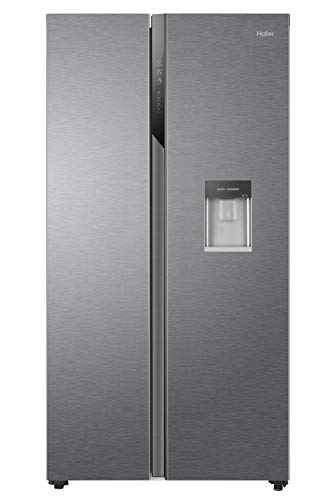The Comprehensive Guide to Refrigerators in the UK
Refrigerators are a vital appliance in every home, serving a crucial role in food conservation and security. The UK market offers a diverse series of fridge types, sizes, features, and brand names. This article aims to offer an extensive understanding of fridges readily available in the UK, including their functions, energy efficiency, and factors to consider when buying.
Kinds Of Refrigerators Available in the UK
When looking for a refrigerator, it is essential to understand the various types readily available. Each type includes its own set of functions and functions, catering to different requirements and choices. The most typical types of refrigerators discovered in the UK include:
1. Top Freezer Refrigerators
- Description: The standard design, featuring the freezer compartment on top.
- Pros: More affordable, spacious, easy access to fresh food.
- Cons: Limited freezer space, the top may be less hassle-free for bulk products.
2. Bottom Freezer Refrigerators
- Description: Freezer is located at the bottom, allowing simpler access to fresh food.
- Pros: Greater convenience, better exposure of fresh items.
- Cons: Usually more expensive, some might fight with big frozen products.
3. Side-by-Side Refrigerators
- Description: Features 2 vertical compartments, one for the fridge and one for the freezer.
- Pros: Ample storage space, simple to access both frozen and fresh foods.
- Cons: Wider footprint, they might not fit in smaller sized kitchen areas.
4. French Door Refrigerators
- Description: Combines features of bottom freezers and side-by-sides, with two doors for the fridge on top.
- Pros: Stylish design, spacious, and frequently includes sophisticated features.
- Cons: Higher rate point, aligns inadequately with smaller sized kitchen area layouts.
5. Compact Refrigerators
- Description: Smaller designs designed for restricted areas.
- Pros: Ideal for small homes or offices, energy-efficient.
- Cons: Limited storage capability, might do not have features.
6. Integrated Refrigerators
- Description: Designed to blend effortlessly with kitchen cabinets.
- Pros: Custom fit, visual appeal, increases home value.
- Cons: Higher expense, may offer less flexibility in positioning.
7. Smart Refrigerators
- Description: Equipped with Wi-Fi and wise innovation functions.
- Pros: Advanced features like touch screens and internal video cameras.
- Cons: Expensive, more intricate to repair.
| Refrigerator Type | Availability | Typical Price Range | Energy Efficiency |
|---|---|---|---|
| Leading Freezer | Moderate | ₤ 300 - ₤ 600 | Typical |
| Bottom Freezer | High | ₤ 400 - ₤ 800 | Above Average |
| Side-by-Side | Easy | ₤ 800 - ₤ 1500 | Differs |
| French Door | High | ₤ 800 - ₤ 2000 | High |
| Compact | Minimal | ₤ 200 - ₤ 500 | Typical |
| Integrated | Custom | ₤ 1000 - ₤ 2500 | High |
| Smart | Variable | ₤ 1200+ | High |
Secret Features to Consider
- Energy Efficiency: Look for models that are energy-efficient. In the UK, devices are ranked from A (most effective) to G (least effective). An A+ ranking and above can lead to substantial energy cost savings.
- Capacity: Choose a fridge with adequate capacity for your home. A standard guideline is 100-200 liters per person.
- Sound Level: Consider models that run quietly, particularly if the cooking area is near living spaces.
- Cooling Technology: Features like frost-free technology are worth the financial investment, as they reduce maintenance.
- Adjustable Shelves: Having adjustable racks boosts the flexibility to save bigger items.
- Temperature level Control: Check for user friendly temperature controls and zones for different kinds of food.
- Design: Choose the style and color that matches your kitchen area visual, whether you choose a contemporary stainless steel look or a classic retro surface.
Purchasing Tips
- Identify Your Needs: Consider your cooking practices, family size, and cooking area space.
- Set a Budget: Refrigerators been available in numerous rate ranges. Establish a budget before you begin going shopping.
- Research Energy Ratings: Invest in energy-efficient models to conserve on energy costs.
- Read Reviews: User experiences can offer insights into dependability and efficiency.
- Compare Brands: Some brand names are understood for their durability while others might use more innovative functions.
Regularly Asked Questions (FAQs)
1. The length of time do refrigerators typically last?
- Refrigerators generally last in between 10 to 20 years, depending on the brand and how well they are preserved.
2. Exist any maintenance pointers for prolonging the life of a refrigerator?
- Routinely clean the coils, examine the door seals, and regularly thaw if needed to maintain optimum efficiency.
3. What is the best size refrigerator for a household of 4?
- For a household of four, a refrigerator with a capability of around 400-600 liters is typically sufficient.
4. Do I require to fret about energy consumption when buying a refrigerator?
- Yes, energy consumption is important. Search for systems with high energy efficiency ratings to decrease month-to-month costs.
5. Should Carmella Yerly pick a fridge with a water and ice dispenser?
- This feature can be convenient, particularly for households. Nevertheless, it may need more maintenance than basic designs.
Getting a refrigerator is a considerable decision for any home in the UK. With various types available, each with its unique functions and benefits, it is important to assess individual needs before deciding. By thinking about elements such as energy efficiency, capability, and style visual appeals, consumers can choose a fridge that aligns well with their lifestyle, eventually boosting their kitchen area experience while protecting food quality and freshness.

